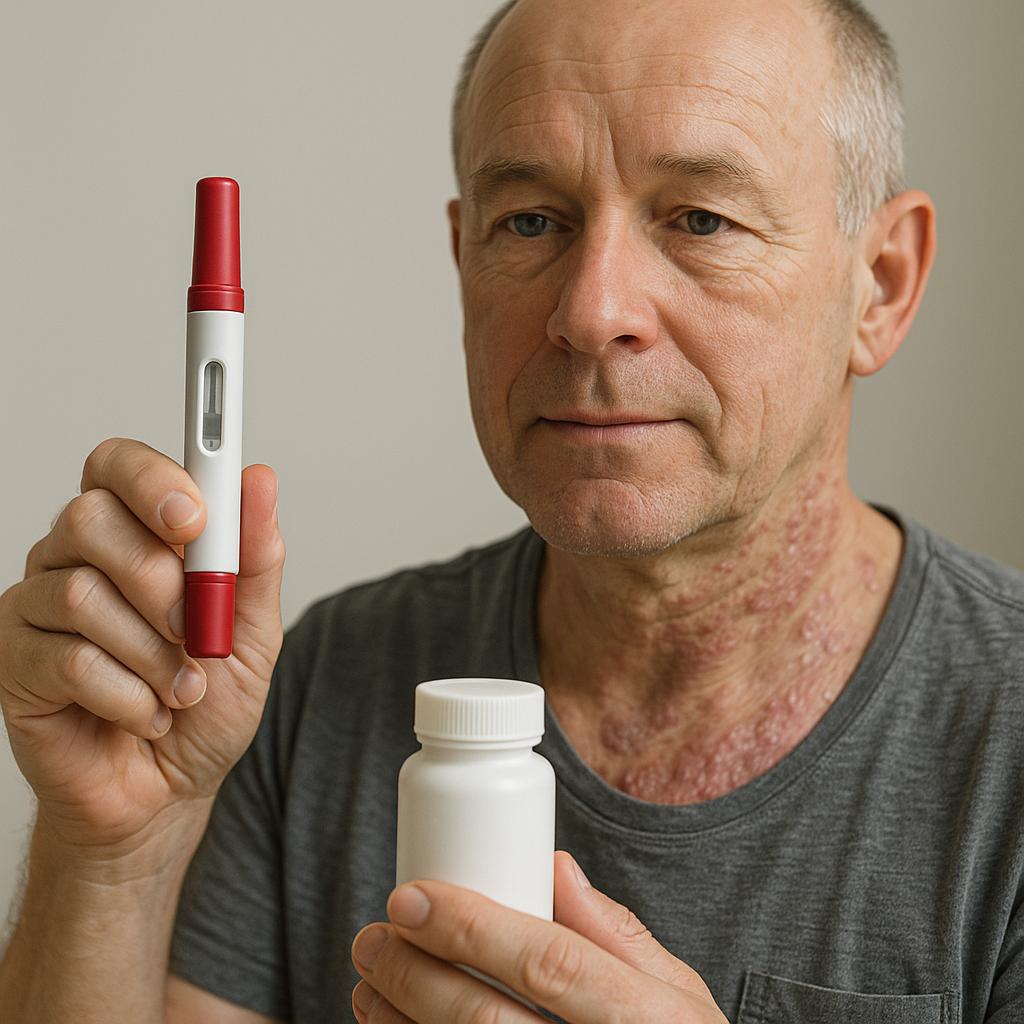Imagine you’re one of the millions living with chronic plaque psoriasis — a lifelong condition that can be both physically painful and emotionally draining. For years, one of the go-to treatments has been Humira, a powerhouse biologic drug used to calm the immune system and ease inflammation. It works, and it works well. But there’s a catch: it’s also one of the most expensive medications in the world.
Now, thanks to a new UK study published in JAMA Dermatology, there’s good news — really good news — for those relying on this treatment. It turns out that the more affordable biosimilar versions of Humira are just as effective at managing psoriasis as the name-brand original.
The study pulled data from over 11,400 patients via the British Association of Dermatologists Biologic and Immunomodulators Register (BADBIR). Researchers compared outcomes for patients using Humira and two approved biosimilars containing the same active ingredient, adalimumab. The finding? No meaningful difference in disease control between the name-brand and biosimilar options.
“It’s a big win for both patients and healthcare systems,” said Dr. Carl-Magnus Hake, a study co-author, in an interview with Sweden’s Dagens Medicin. “These biosimilars are more affordable, and the data show you’re not sacrificing performance by choosing them.”
So, What Exactly Are Biosimilars?
If “biosimilar” sounds confusing, think of them as the close cousins of original biologic drugs. They are not identical — because biologics are developed from living cells — but are engineered to function in virtually the same way with no clinically meaningful differences in safety, purity, or strength.
When Humira’s patent protection expired — first in the EU in 2018 and then in the US in 2023 — the market opened up for these cost-effective alternatives. Countries like Sweden and others in Europe have already embraced biosimilars as part of standard treatment protocols.
Why This Matters
Psoriasis is not simply a skin condition — it’s a complex chronic immune disease with far-reaching effects on physical, emotional, and financial well-being. For many, biologics offer relief that topicals and oral medications cannot. But the high cost has been a significant obstacle.
This latest research sends a clear message:
- Switching from Humira to a biosimilar doesn’t affect treatment outcomes.
- It can help healthcare systems save money.
- That funding can be redirected to reach more patients or improve care in other areas.
Dr. Hake emphasized that switching could “free up substantial resources within dermatology departments.” Over time, this could lead to wider access to effective therapies for patients previously unable to afford them.
Looking to the Future
As more biosimilars hit the market and long-term data confirms their effectiveness, these drugs have the potential to be game-changers across multiple chronic diseases, including Crohn’s disease, rheumatoid arthritis, and beyond.
While this may not seem like a groundbreaking scientific discovery, its practical impact is profound. It represents a quiet revolution in chronic disease care — one that could extend life-enhancing medication access to countless patients around the globe.
Whether you’re a patient, a caregiver, or a medical provider, keep your eye on the rise of biosimilars. The transition could be one of the most meaningful shifts in healthcare happening today.
Have you — or someone you care about — made the switch to a biosimilar? Your experiences matter, and we’d love to hear your story.
